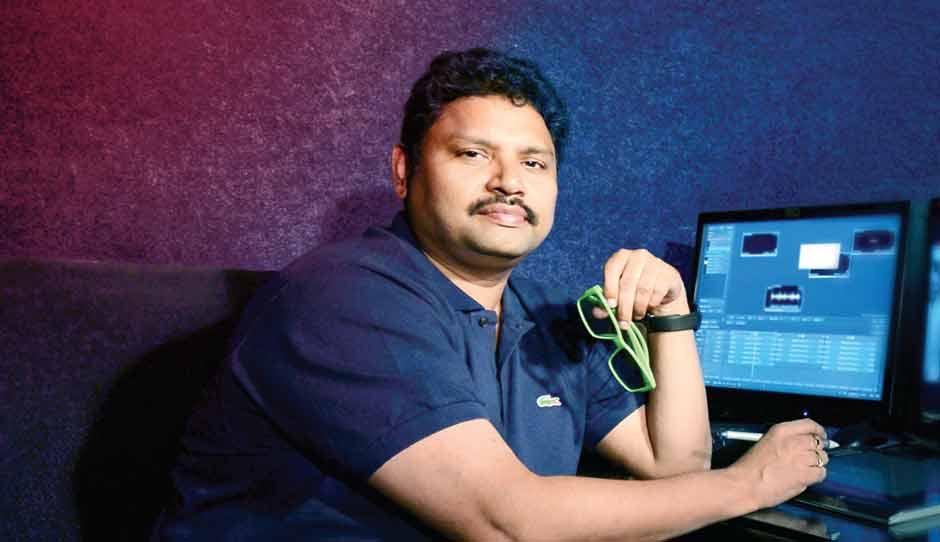How UFO Moviez Became a Blockbuster Success
- BY Sonal Khetarpal
 In Strategy
In Strategy 23306
23306 0
0

Avid cinema-goers may not have heard of Sanjay Gaikwad, the co-founder of UFO Moviez India, but he isn’t complaining. He’s happy to let his Rs 200-crore (FY11-12) digital cinema company do the talking. Since it clapped to action in 2004, it has digitised 3,500 theatres, and contributes Rs 1,200 crore to the film industry annually, as 70 per cent of all movies released in India come from their network.
My career began with the Zee Group in 1997. As the president of technology and new projects, I conceptualised and implemented Playwin, India’s first online lottery. It was a huge success. We had a turnover of Rs 750 crore in the first year itself, and made overall profits of Rs 200 crore. I wouldn’t have been able to do this without the support and guidance of Vijay Jindal, the then MD and CEO of Zee and their group chairman Subhash Chandra. Honestly, I owe them whatever business acumen I have now.
But I had to leave Zee in 2003 to move to Delhi and join Apollo Tyres. This didn’t work out though, and I shifted back to Mumbai to look for another job. My co-founder Narendra Hete suggested we start our own company that provided infrastructure for online lotteries. We named it Valuable Group and started work in 2004. The market for online lottery was growing at a promethean pace those days. Within six months, we had around 6,000 online terminals on our network, and a turnover of Rs 3 crore a day. But, we realised this wouldn’t be a long-stay business. Lottery is a highly irregulated and risky segment in India. So, in spite of high profits, we began to look at different technology avenues. We wanted to mitigate our risk of being too dependent on one vertical.
UFO Moviez was conceptualised a year later with Rs 10 crore as start-up capital. The market to digitise theatres and deliver movies via satellite was big in India, and we wanted to tap that opportunity. In fact, we completely dropped our lottery business in 2006. UFO Moviez was a capital-intensive enterprise because of the equipment costs. Fortunately, Apollo Tyres came on board as a financial partner. They put in Rs 90 crore in the firm.
From the beginning, we set a very clear objective for ourselves. We didn’t want to change the content or creative fabric of the film industry. We only wanted to revolutionise the way movies were exhibited. The industry’s benefit was at the centre of our business model. We wanted to give them a significant value proposition by offering time and cost advantages for multiple stakeholders—film producers, distributors, theatre owners and movie watchers.
Most theatres were still using analog prints when we started out. In the analog system, a cinema hall owner has to buy a film’s print for up to Rs 60,000. In the digital format, the print costs around Rs 10,000. Bringing down the price of the film’s print helps the movie to be released in more centres. That, in turn, generates a larger box-office collection. Digital film prints need digital theatres for broadcast. We offered that too. KT Vision in Mumbai’s Vasai neighbourhood was the first multiplex we digitised.
Yet, theatre owners had to be persuaded to go in for digitisation. Switching to digital technology had a one-time set-up cost of around Rs 7 lakh which discouraged many theatre owners initially. So, we came up with a rental scheme. We told them we would digitise their theatres for a small amount of rent. In exchange, we asked them to give us the revenue from the advertisements that run during film screenings.
We didn't want to change the creative fabric of the film industry, just revolutonise the way movies were exhibited."—Sanjay Gaikwad
We made brisk progress in the first few years. We are the only ones in India to use MPEG-4 format to deliver movies. Other players are still using MPEG-2 where the size of movies is ten times bigger and they have to be delivered physically through hard drive which presents many logistic challenges.
I believe our ability to develop technologies in time to catch new trends has helped us in our growth. For example, we introduced a low-cost 3D technology seeing the sudden influx of 3D films. Similarly, we have an invitation-only Club X initiative too. Essentially, Club X is a UFO@Home Service that can stream movies simultaneously as a first-day, first-show screening, directly to a consumer’s home. Although it’s priced at Rs 15,000 per show, it’s picked up among celebrities and wealthy entrepreneurs. Each of these platforms has given way to new revenue streams for the film industry.
In keeping with our effort to expand the entertainment market, we acquired a company called moviebeam in 2008. We re-engineered that technology to create different digital media platforms. One such facility was providing VOD services to the hospitality sector in the US. It enables consumers to get high-definition video content on demand. They can pay per-view, and we are excited about introducing this in India.
We used moviebeam's technology to expand our domain too. The educational sector has been buzzing with technological innovation. We didn’t want to be left behind so we created Edubeam, an interactive learning platform for virtual classroom teaching. This has been a heartening vertical to get into. We’ve already installed the system in 80 schools, and aim to set it up in another 800 over the next six months.
Recently, we also launched a new product called IMPACT Ticketing Platform. It is an online satellite-based ticketing system that provides minute to minute box-office information to the concerned stakeholders of the movie business chain leading to transparent, faceless transactions. We currently have 250 screens on IMPACT.
It might seem so but not every idea we had has worked. Not every seed you plant bears fruits, and gives you profits. For example, we had started a digital signage business in 2007-08 but there was a lot of competition so we had to drop it and we lost a few crore in the process. But, I am glad we shut it down—it was the right decision to let that business die.
Thankfully, that was a momentous time for us in other ways. We raised our first private equity funding of Rs 140 crore from UK’s 3i Group. In 2011, Providence Equity Partners invested a further Rs 360 crore in the company. When people trust you with their money, it’s great encouragement. It tells you that others believe in you and your team.
So getting your team right is the most crucial aspect of being an entrepreneur. You can’t earn fame alone. Success comes with team effort. In 2007, there was a technical glitch in some of the projectors installed by us. Several show screenings were adversely impacted because of that. We were in a cash-out situation, and could not do any more installations to achieve our targets. I was extremely touched when the whole management team joined hands to solve the problem, and even offered salary cuts. It is at times like these that you feel life is worth it. If your team comes through in such tough times, and makes you win, it’s necessary to ensure they are winning too. I try and do that for all of my 800 employees, to make sure they are included in our growth strategy. As the owner, you have to try and create that win-win for everybody. I’d like to think we have managed to do that to some extent.





























Add new comment